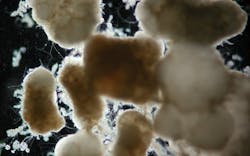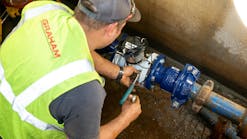As part of its international roll out, Dutch technology Nereda will be used in Australia for the first time after a contract has been awarded by Queensland’s South Burnett Regional Council.
Aquatec Maxcon - the Australian Nereda technology partner of international engineering and consultancy firm Royal HaskoningDHV – will design and construct the plant upgrade to support a population of 12,500.
The upgrade will be supported by AUS$10 million in funding from the Queensland State Government and is expected to be completed by September 2016. It will provide the Kingaroy community with water which can also be reused to irrigate sporting grounds in the area.
Nereda is derived from the name of a water nymph in Greek mythology. It was invented by the Delft University of Technology in the Netherlands and has taken 20 years to be developed through a public-private partnership.
The private entity in this group is Dutch consultancy Royal HaskoningDHV, with the Dutch Water Boards acting as the public partner.
Nereda treats wastewater with the features of so-called aerobic granular biomass: purifying bacteria that create compact granules with “superb settling properties”, according to the Dutch consultancy.
It was in May 2012 when the Dutch town of Epe opened the first commercial scale wastewater treatment plant to use the technology.
Over 10 plants using Nereda treatment technology are now in operation or being constructed, in the Netherlands, Portugal, South Africa and Brazil.
Royal HaskoningDHV predicts that by 2018, there could be as many as 50 installations worldwide (see WWi story).
Commenting on the Australia contract, Mayor Wayne Kratzmann, said: "The project will deliver significant benefits for residents and businesses across Kingaroy, allowing for projected population growth over the next 20 years.”
Greg Johnston, managing director of Aquatec Maxcon, said: “The adoption of this first Australian Nereda process in Kingaroy should lead other utilities and councils to take a similar approach to sewage treatment processes.”
Read more
Activated Sludge 2.0: Is Nereda Really a Game Changer? After 20 years in research and development, the Nereda aerobic granular sludge process is now in operation, with over 10 references globally and 20 facilities planned. What does it mean for traditional wastewater treatment?
Brazil to roll out 10 aerobic granular sludge plants Foz, the Brazilian Water Company of Odebrecht Ambiental has commissioned consultancy Royal HaskoningDHV to help build 10 wastewater treatment plants (WWTP) over the next five years, at a cost of 11.5 million Euros…
VIDEO INTERVIEW: Nereda development Rene Noppeney discusses how the Nereda process developed in the Netherlands is changing wastewater globally…




